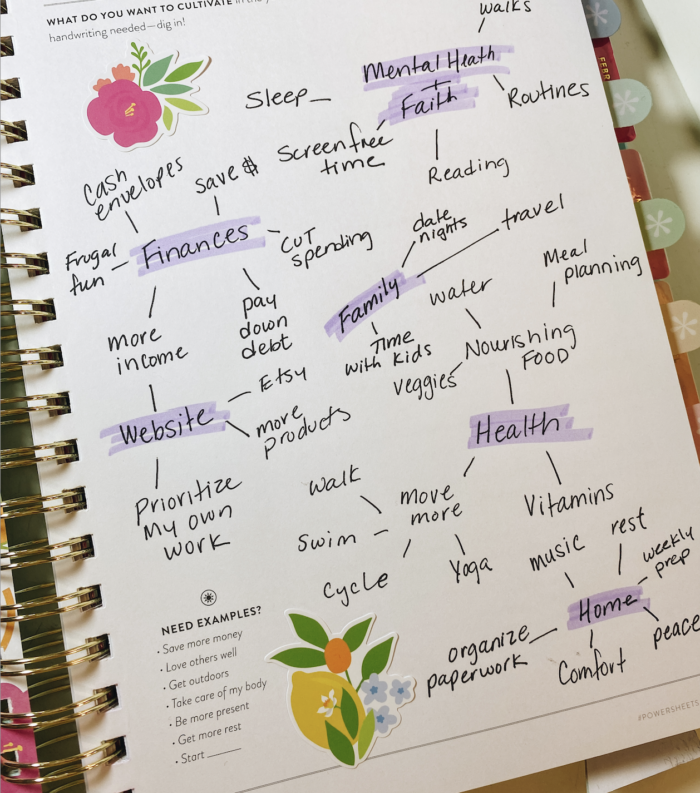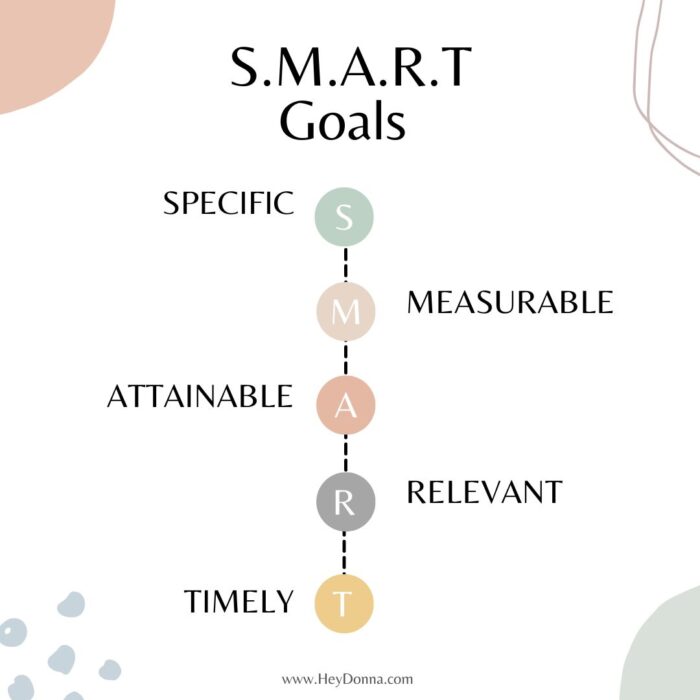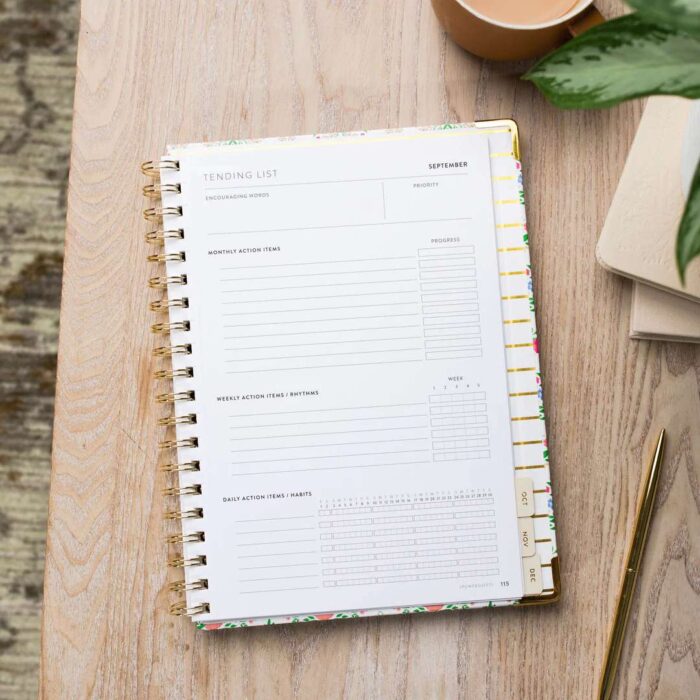Setting annual goals can be a helpful way to focus your efforts and achieve the things you want in life. However, before you set your annual goals, it’s important to consider a few key factors to ensure you are setting yourself up for success. Here are 10 things to consider before setting yearly goals:

1. Review your Past Year
Before you set your annual goals, it’s important to look back and assess the past year. Consider your strengths, and weaknesses, and look for areas for improvement. This will help you identify the areas where you need to focus your efforts and set realistic goals. You can use my Personal Annual Review Worksheets to help you look back and do a deep dive into the past year.
2. Consider your faith and values:
Your values and faith include the things that are most important to you and therefore guide your actions. Before you set your annual goals, take some time to reflect on your personal values and faith and consider how your goals align with them. This will help you ensure that your goals are meaningful and fulfilling.
3. Review your priorities:
It’s important to think through your own personal priorities and think about what is most important to you. Every year this might be different. You may be in a year of transition with a big move or job change. You may be going back to school and your top priority this year is excelling in your studies. Take some time to consider your priorities and how your goals fit into the bigger picture of your life.

4. Set attainable, SMART goals
SMART goals are specific, measurable, achievable, relevant, and timely. When setting your annual goals, make sure they are SMART goals to increase your chances of success. By doing this we set goals that are actually attainable. Don’t fall into the trap of setting lofty goals without thinking about how you will reach them.

5. Break down your goals
To make your goals more manageable, break them down into smaller, more achievable tasks. This will help you stay focused and motivated as you work towards your goals.
I like to break down my goals according to the Powersheets system (click here to learn more!).
I break down each goal into monthly, weekly, and daily goals or habits. This makes it very easy to track my progress. This also helps me create smaller “bite-sized” goals to keep me focused and motivated.
If I set a goal like “Create a Healthy Lifestyle”, I wouldn’t even know where to begin. It becomes much more attainable when I break it down into smaller monthly, weekly, and daily goals. Smaller goals like “Go to the gym 15 times a month”, ” Walk 3 days a week”, and “Drink 60oz water daily” make it possible for me to track my progress, and I’m more likely to stay focused and achieve my goal.
6. Create a detailed plan
Once you have identified your goals and broken them down into smaller tasks, create a plan to help you achieve them. This might include creating a schedule or setting deadlines for each task. When you set a goal with no deadline or checkpoint, it’s very hard to stay motivated.
Having specific dates or tracking new habits will help you along the way. You can use this free habit tracker printable to help you track your new habits.
7. Be flexible and make changes if needed
Life is unpredictable, and things can change very quickly. It’s important to be flexible and open to change. Take some time to review your goals and look for potential roadblocks, and make a plan for them.
If you can’t make it to the gym because of the weather, what can you do at home so you still stay on track? Also, remember that If things don’t go as planned, you can always adjust your goals or change your approach.
8. Surround yourself with support and accountability
It’s helpful to seek support and accountability as you work towards your goals. This might include seeking the help of a mentor, friend, or coach, to help you as you work on your goals. Finding a friend who is also working towards the same goal can be very helpful. If you have big health or business goals, hiring a coach might be the right choice for you.
However, you choose to do it; finding the right support means you’re not alone in your journey and you have someone on your team cheering you on.
9. Acknowledge your successes
I love any excuse to celebrate and it’s important to celebrate your victories, no matter how small. This will help you stay motivated and focused as you work towards your goals. I like to reward myself with a day of self-care, a trip, a frivolous purchase, or dinner out. Find out what motivates you and make it a part of your goal planning.
10. Do a Quarterly Reflection
As you work towards your annual goals, I recommend taking time to reflect on your progress each quarter and reassess your goals as needed. This will help you stay on track and ensure you are making progress toward your goals. Sometimes you will find that your priorities have changed, and you might have a lifestyle change or health challenge that impacts your goal setting.
Be flexible and remember that changing your approach or timing is not a failure. Sometimes we just need to move our goals around to accommodate our life changes.
When you consider these things before setting your annual goals, you can increase your chances of success and achieve the things you want in life. I hope you found these tips helpful and I wish you all the best of luck with your 2023 goals this year!
Resources:
Goal-setting planner: Powersheets
Related Posts:
- Habit Tracker Printable
- Year-End Review Worksheet
- Free Self-assessment Worksheets
- Grab some Printable Calendars to help you keep track of your goals and deadlines for the year



Lydia
These are such great tips! I especially find #5 helpful. For a long time, I didn’t do this or #6 very well and then would barely make any progress in any goals that I made. Breaking down my goals into actionable “tasks” made all the difference!